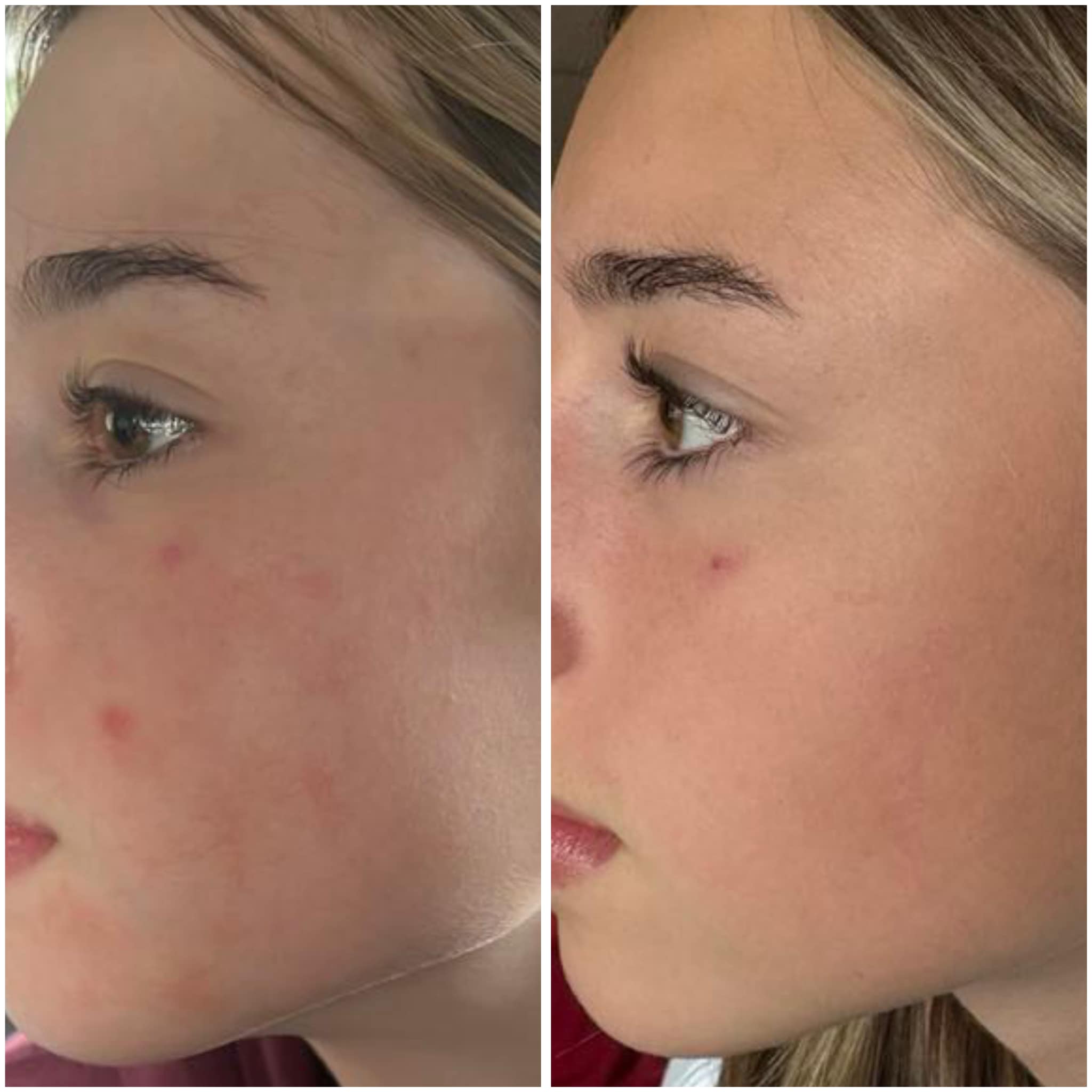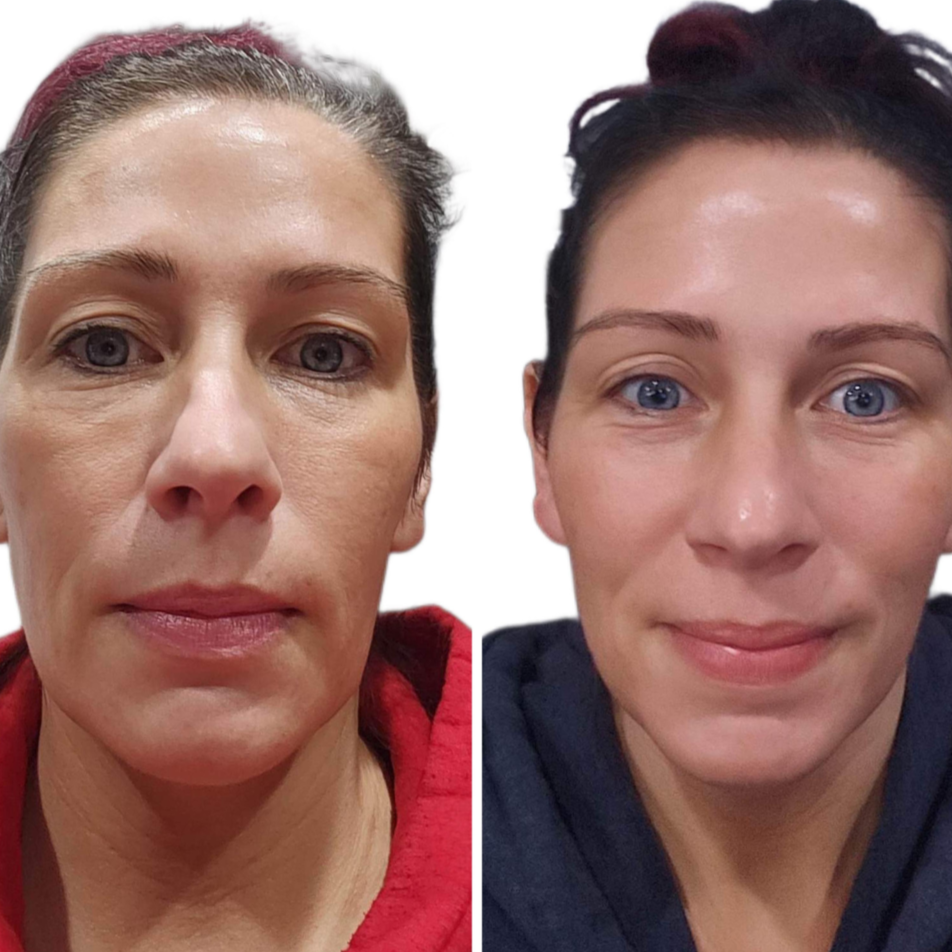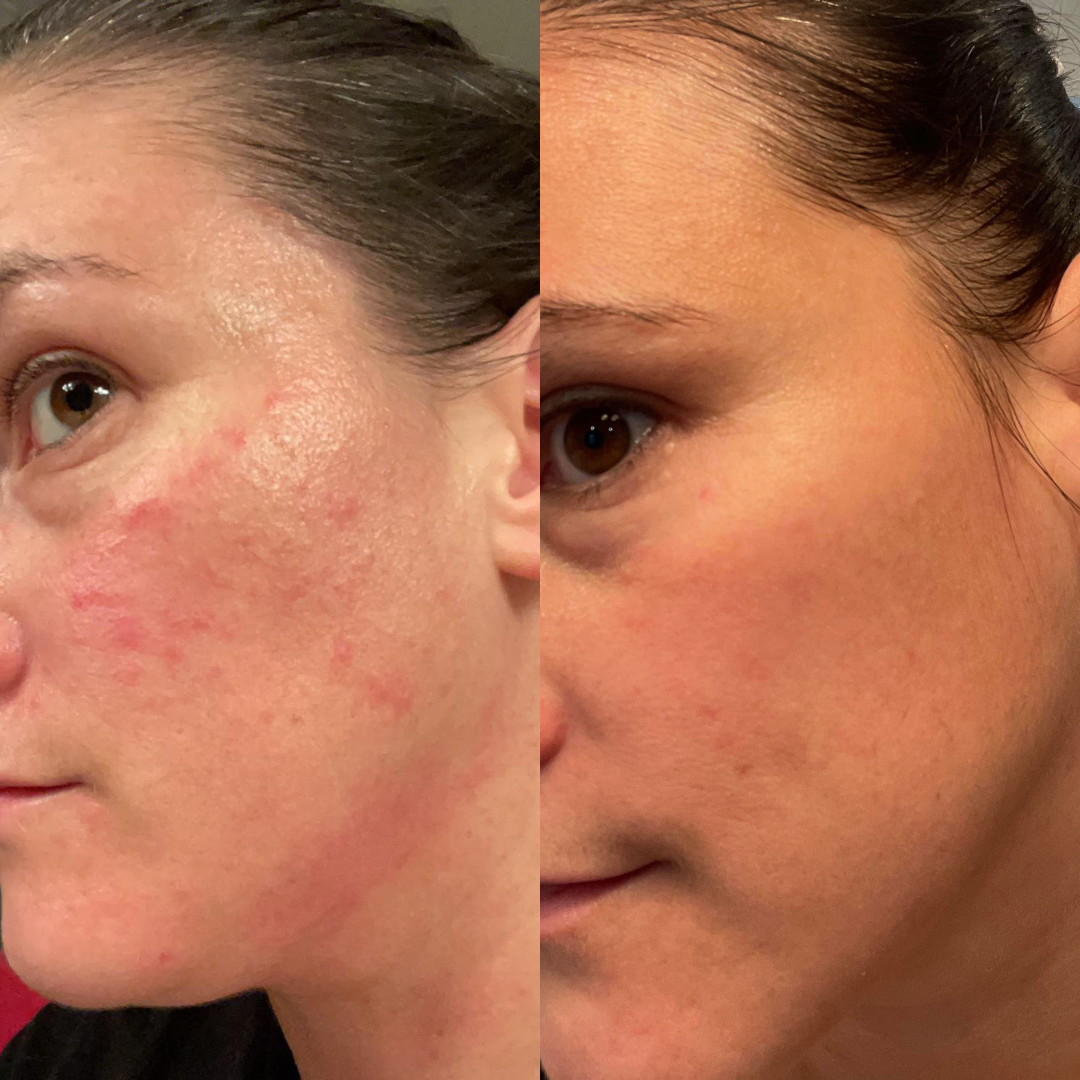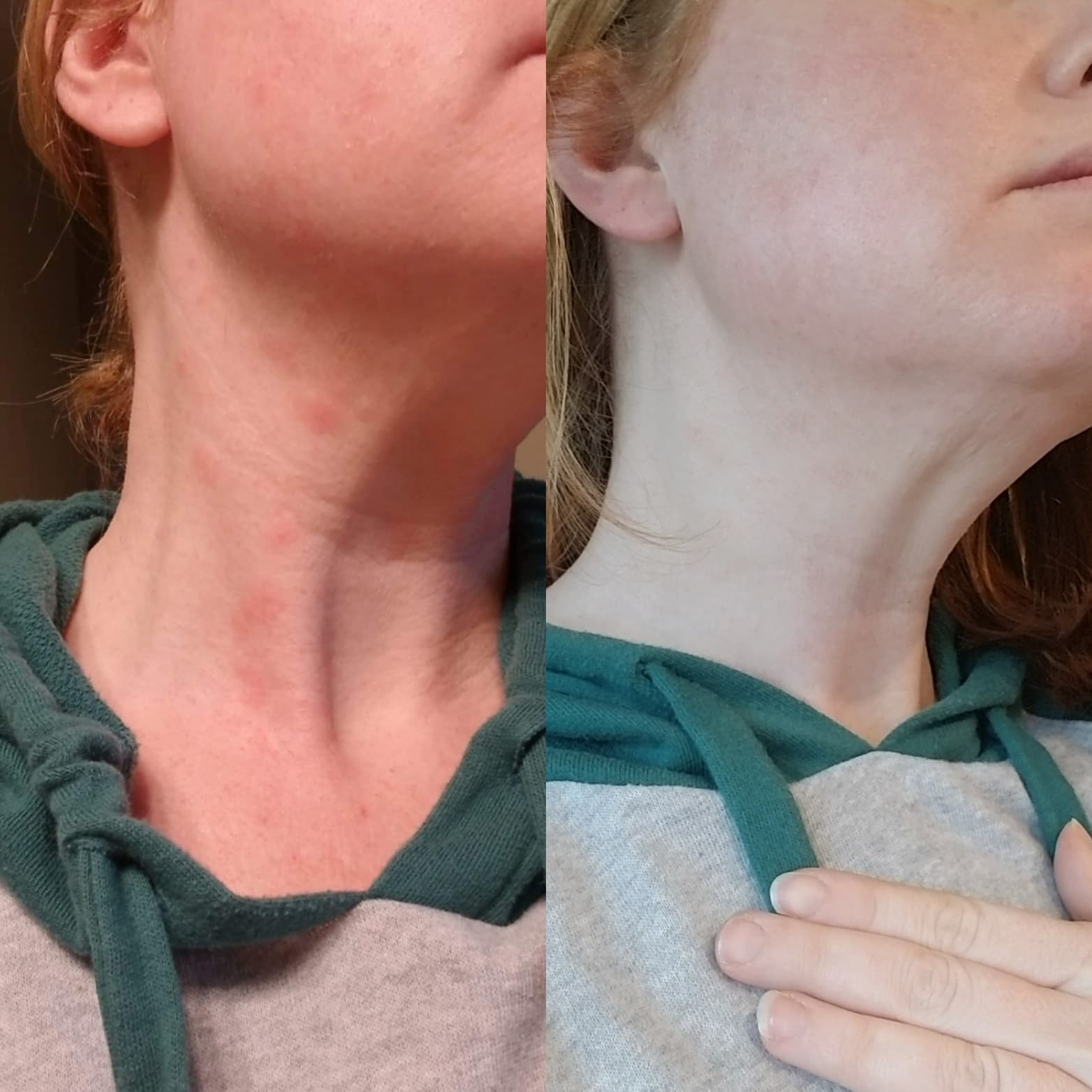 GLYCOLIC ACID is the most popular alpha-hydroxy acid (AHA) used in skin care. It comes from sugar cane, and has the smallest molecular structure, so it’s the most effective at getting into the skin. Glycolic acid is a fantastic anti-aging agent that is very effective at exfoliating the skin, reducing fine lines, fading dark spots, increasing skin thickness, and evening out skin tone and texture. Be careful when using, it can desensitize the skin so you want to make sure you are counting the side effects with a barrier repair product like HYDROFLORA Barrier Repair Oil Gel.
GLYCOLIC ACID is the most popular alpha-hydroxy acid (AHA) used in skin care. It comes from sugar cane, and has the smallest molecular structure, so it’s the most effective at getting into the skin. Glycolic acid is a fantastic anti-aging agent that is very effective at exfoliating the skin, reducing fine lines, fading dark spots, increasing skin thickness, and evening out skin tone and texture. Be careful when using, it can desensitize the skin so you want to make sure you are counting the side effects with a barrier repair product like HYDROFLORA Barrier Repair Oil Gel. LACTIC ACID is an organic acid that naturally forms when certain foods or bacteria go through the process of fermentation, It helps speed up cell turnover and stimulates cell renewal—the processes by which your skin sheds old cells and replaces them with new ones revealing a brighter and fresher complexion. It is a gentle AHA unlike glycolic acid and is a better choice for those who have more sensitive skin types. You can find it at 15% concentration in our Petal Peel Resurfacing Jelly Serum
SALICYLIC ACID well-known for its ability to exfoliate the skin and keep pores clear, reduce inflammation and redness associated with acne and breakouts. Often times you will see salicylic acid in acne products
MANDELIC ACID is a alpha-hydroxy acid that is derived from bitter almonds. Like glycolic acid, it works as an exfoliant and helps prevent acne, treat sun damage, and even out pigmentation.
Due to its larger molecular structure, it doesn’t penetrate skin as deeply as glycolic acid, so it’s less irritating to the skin.
KOJIC ACID is produced by bacteria used in the fermentation of rice for the production of sake. It’s a popular ingredient in Asian skin care products thanks to its anti-aging properties and it's ability to lighten dark spots/hyper-pigmentation.
TARTARIC ACID Naturally found in grapes, tartaric acid helps improve skin texture and reduce visible signs of aging. It's very unique because not only is it an AHA but it contain antioxidant properties and has the ability to increase skin hydration and helps bind moisture. Good for ALL SKIN TYPES as and gentle enough for more sensitive skin types. You can find it at a 5% concentrate in our Petal Peel Resurfacing Jelly Serum
OTHER NON ALPHA HYDROXY ACIDS (AHA'S)
FERULIC ACID antioxidant ingredient that’s most commonly used in conjunction with vitamins C and E serums. This powerful antioxidant trio is well known for its ability to protect the skin from the damaging free radicals generated by UV radiation by stabilizing the formula and boosting one another's power. You want to use it in your daytime skin routine. You can find this antioxidant trio combo in our Cell Active Ferulic C+E Serum
ALPHA LIPOIC ACID powerful antioxidant that helps protect against the damage caused by free radicals formed by exposure to the sun, pollution and heat. Powerful alone it also enhances the antioxidant effects of vitamins C and E similar to Ferulic Acid. Your can find it in BOTH our DAY prouducts FLORA-C Anti-Aging Day Moisturizer and our DAY serum Cell Active Ferulic C+E
AZELAIC ACID is a compound found in wheat, rye and barley often used to help fight moderate acne. It helps keep pores clear, kills bacteria and reduces inflammation. It is gentle enough to use on all skin type but could possibly irritate sensitive or barrier compromised skin types. Also used as a skin lightening ingredient for fading post-acne marks, or post-inflammatory hyperpigmentation. It’s frequently combined with retinoids as a milder alternative to hydroquinone.
We hope this guide helps you through understanding which acids work best for your skin needs so you know where to begin on your journey. Remember to always use a quality SPF during the day (and yes reapply) especially when using products that contain AHA's because all the work you put in towards your skin can reverse or make you even more prone to hyper pigmentation.












Share and get 15% off!
Simply share this product on one of the following social networks and you will unlock 15% off!